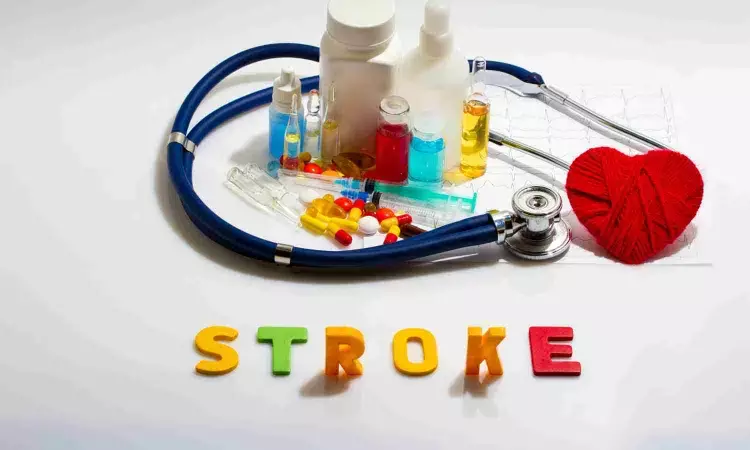- Home
- Medical news & Guidelines
- Anesthesiology
- Cardiology and CTVS
- Critical Care
- Dentistry
- Dermatology
- Diabetes and Endocrinology
- ENT
- Gastroenterology
- Medicine
- Nephrology
- Neurology
- Obstretics-Gynaecology
- Oncology
- Ophthalmology
- Orthopaedics
- Pediatrics-Neonatology
- Psychiatry
- Pulmonology
- Radiology
- Surgery
- Urology
- Laboratory Medicine
- Diet
- Nursing
- Paramedical
- Physiotherapy
- Health news
- Fact Check
- Bone Health Fact Check
- Brain Health Fact Check
- Cancer Related Fact Check
- Child Care Fact Check
- Dental and oral health fact check
- Diabetes and metabolic health fact check
- Diet and Nutrition Fact Check
- Eye and ENT Care Fact Check
- Fitness fact check
- Gut health fact check
- Heart health fact check
- Kidney health fact check
- Medical education fact check
- Men's health fact check
- Respiratory fact check
- Skin and hair care fact check
- Vaccine and Immunization fact check
- Women's health fact check
- AYUSH
- State News
- Andaman and Nicobar Islands
- Andhra Pradesh
- Arunachal Pradesh
- Assam
- Bihar
- Chandigarh
- Chattisgarh
- Dadra and Nagar Haveli
- Daman and Diu
- Delhi
- Goa
- Gujarat
- Haryana
- Himachal Pradesh
- Jammu & Kashmir
- Jharkhand
- Karnataka
- Kerala
- Ladakh
- Lakshadweep
- Madhya Pradesh
- Maharashtra
- Manipur
- Meghalaya
- Mizoram
- Nagaland
- Odisha
- Puducherry
- Punjab
- Rajasthan
- Sikkim
- Tamil Nadu
- Telangana
- Tripura
- Uttar Pradesh
- Uttrakhand
- West Bengal
- Medical Education
- Industry
High incidence of postoperative covert Strokes in Elderly tied to delirium and cognitive decline: Study

Recent study aimed to assess the incidence of postoperative strokes and their impact on postoperative neurocognitive outcomes in older patients recovering from noncardiac surgery. The researchers conducted the Postoperative Covert Stroke and Cognitive Dysfunction among Elderly Patients Undergoing Noncardiac Surgery study (PRECISION) at two Chinese academic centers. The study included 934 patients aged 60 years and older who underwent elective noncardiac inpatient surgery, with two-thirds of them having neurosurgical craniotomies. The results showed that there were 111 cases (11.9%) of covert strokes within 7 days after surgery, with no overt strokes observed. Postoperative delirium occurred in 117 patients (12.5%) within 5 days post-surgery, while neurocognitive decline was observed in 18.8% of patients at 1 year after surgery. Covert strokes were significantly associated with delirium and neurocognitive decline at 1 year. The study highlighted that patients with covert strokes had twice the risk of postoperative delirium, emphasizing the clinical significance of these covert strokes. The researchers noted that covert strokes were more common in neurosurgical patients and were associated with multiple acute brain infarcts, primarily in the frontal lobe, underscoring their impact on cognitive function.
Impact of Preoperative Steroid Use
Preoperative steroid use was found to have a protective effect against postoperative stroke and delirium in patients. The results indicated that covert strokes worsened Mini-Mental State Examination scores, quality of life, and depression scores, leading to long-term neurocognitive decline.
Study Limitations and Conclusion
The study's limitations included the exclusion of critically ill patients, the timing of brain imaging post-surgery concerning delirium diagnosis, and the challenges of in-person neurocognitive assessments in older patients. Despite these limitations, the study concluded that covert strokes in older patients undergoing major noncardiac surgery were prevalent and significantly correlated with adverse postoperative outcomes like delirium and neurocognitive decline, highlighting the clinical importance of detecting and managing these covert strokes in this patient population.
Key Points
- The study assessed postoperative strokes and their impact on neurocognitive outcomes in older patients recovering from noncardiac surgery, revealing 11.9% incidence of covert strokes within 7 days post-surgery, with no overt strokes observed.
- Postoperative delirium occurred in 12.5% of patients within 5 days after surgery, while neurocognitive decline was observed in 18.8% of patients at 1 year, with covert strokes significantly associated with both delirium and neurocognitive decline.
- Covert strokes, more common in neurosurgical patients, were associated with multiple acute brain infarcts, mainly in the frontal lobe, highlighting their impact on cognitive function.
- Preoperative steroid use was found to have a protective effect against postoperative stroke and delirium, while covert strokes were linked to worsened Mini-Mental State Examination scores, quality of life, and depression scores, leading to long-term neurocognitive decline.
- Study limitations included the exclusion of critically ill patients, challenges of timing brain imaging post-surgery for delirium diagnosis, and difficulties of in-person neurocognitive assessments in older patients.
- The study concluded that detecting and managing covert strokes in older patients undergoing major noncardiac surgery is clinically crucial due to their prevalence and significant correlation with adverse postoperative outcomes such as delirium and neurocognitive decline.
Reference –
Q. Cui et al. (2024). Covert Perioperative Strokes In Older Patients Having Non-Cardiac Surgery (PRECISION): A Prospective Cohort Analysis.. *Anesthesiology*.https://doi.org/10.1097/aln.0000000000005327
.
MBBS, MD (Anaesthesiology), FNB (Cardiac Anaesthesiology)
Dr Monish Raut is a practicing Cardiac Anesthesiologist. He completed his MBBS at Government Medical College, Nagpur, and pursued his MD in Anesthesiology at BJ Medical College, Pune. Further specializing in Cardiac Anesthesiology, Dr Raut earned his FNB in Cardiac Anesthesiology from Sir Ganga Ram Hospital, Delhi.


